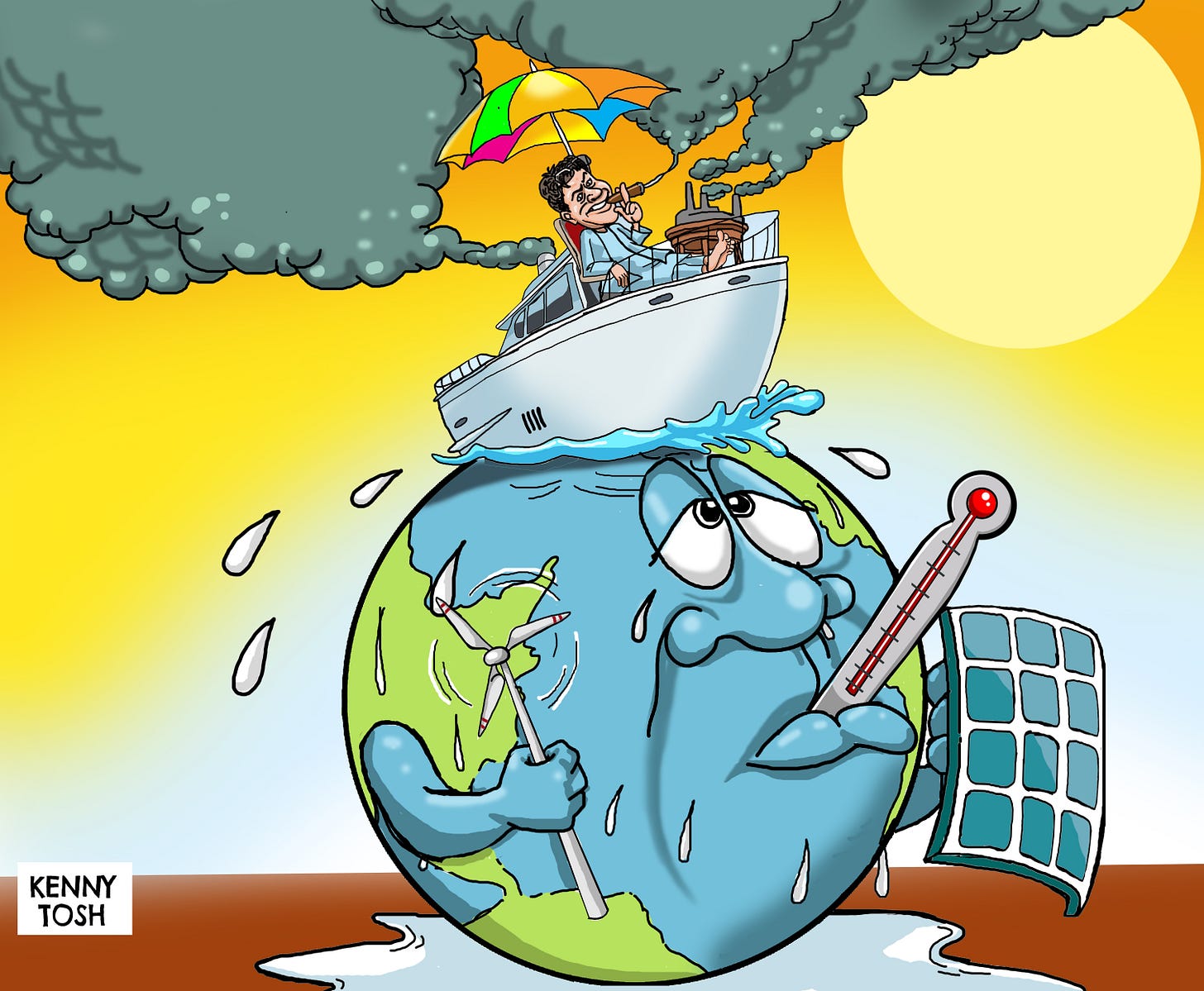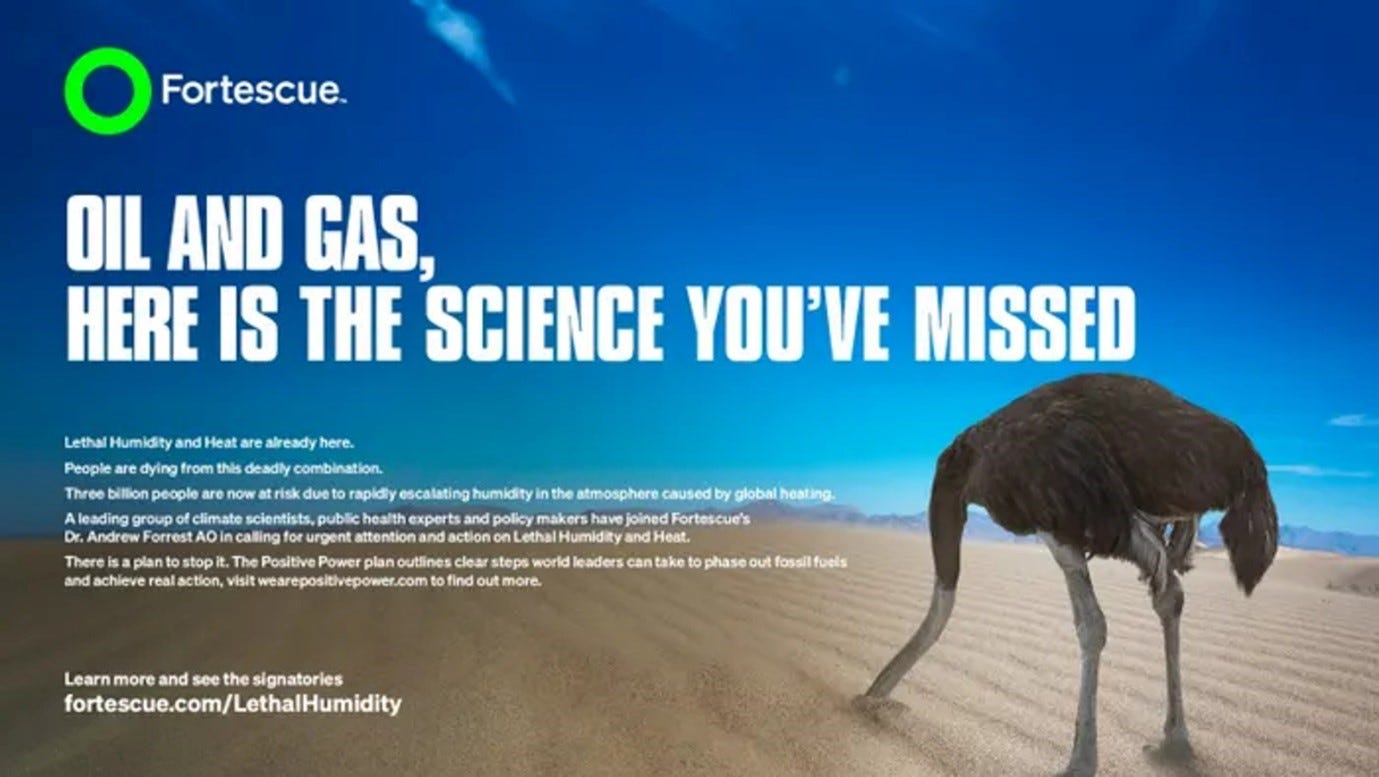Exclusive investigation: Billionaires turned up to COP28 in force
In partnership with The Guardian, the team behind Equals reveals the influence billionaires and their corporations had at COP28.
As negotiators head home from COP 28 after reaching a fraught compromise on fossil fuels, following closely behind is an army of corporate lobbyists who have pushed for an agenda of profit over planet and people.
In an exclusive investigation with Jonathan Watts of The Guardian, we analysed the COP28 delegate list to understand how billionaires and the corporations they own are attempting to influence climate policy.
The findings
A COP for the billionaires not the billions
34 billionaires were registered delegates at COP28. Together they own a staggering wealth of $495.5 billion, equivalent to 682 times more than the amount pledged so far by governments for the Loss and Damage Fund. The fund was created with the intention that developed, polluting countries provide financial support for the destruction caused by climate change in developing countries. Did someone say wealth tax?
A quarter of the billionaire delegates made their fortunes from highly polluting industries such as oil and gas, mining, or chemicals.
“The high number of billionaires at the conference, along with the many private jets they flew in on, suggests Cop may now be second only to Davos as a gathering point for the world’s ultra-rich.” Jonathan Watts
The influence their wealth has bought is shocking. Four billionaires have ‘party badges’, which means they could enter the restricted Blue Zone, the epicentre of decision-making on international climate policies and agreements. These include:
Timur Turlov, CEO of Kazakhstan’s Freedom Holdings, which is accused of helping Russian oligarchs evade sanctions and launder funds, spoke on a panel about environmental and social governance.
Andrey Melnichenko, the founder of fertilizer producer Eurochem and coal energy company SUEK. He is at COP28 in his role as Chairman of the Committee of the Climate Policy and Carbon Regulation in Russia but has also been using the event to push for the return of the woolly mammoth. Talk about focusing on the things that matter! He is sanctioned by the EU for his alleged proximity to the Kremlin and had his super yacht seized by the Italian authorities.
Vagit Alekperov, 30% owner of Lukoil, one of the world’s largest fossil fuel companies. Lukoil is also sanctioned by the US.
We can’t help but be sceptical about where their priorities lie as they shape global climate policy.
11 billionaires have host country badges, meaning they are there by invitation of the UAE. This includes Bill Gates who was given a prime speaking slot at the summit and his nuclear company did a deal with the UAE last week.
Also at the climate talks in Dubai was Ray Dalio, who is worth $15 billion and said "we are living in a world that doesn’t have enough money." He also said that climate solutions have to be profitable.
Nassef Sawiris, who runs OCI, was listed as a delegate. His corporation is producing blue ammonia as a decarbonisation solution in the UAE and has the support of the COP28 president. Far from being a low-carbon solution, climate scientists believe blue ammonia is up to three times more damaging than regular fuels.
While some billionaires have stayed hidden behind the scenes, others have been very public in their schmoozing. Emirati property magnate Hussain Sajwani, has plastered his social media with photographs of his encounters.
Revelations of these ‘pollutocrats’ only strengthen the findings of the most comprehensive study of global climate inequality ever undertaken in last month’s Oxfam ‘Planet for the 99%’ report which Equals has been serialising.
Billionaire-owned corporations
Other NGO analysis of the attendee list has revealed that at least 2,456 fossil fuel lobbyists were on the delegate list, as were 340 representatives from food and agriculture companies and 160 representatives with a track record of climate change denial.
We found that billionaires didn’t have to travel to Dubai to exert their influence. By comparing the delegate list to the companies owned by the 500 richest people in the world according to Bloomberg, we found that there were 399 delegates representing 94 corporations that billionaires own or part own.
Very few of these delegates have “climate” or “sustainability” in their job titles, while many are in marketing or corporate and government affairs, adding fuel to the suspicion that they are there to lobby for favourable climate policy rather than learn how to green their businesses.
We compared the 94 companies billionaires are invested in with the Influence Map database and found only 5 are known to lobby in support of Paris-aligned climate policy (defined by Influence Map as companies that score B and above).
Where these companies got their tickets also raised some eyebrows. We couldn’t help but notice that some of the world’s largest companies had registered delegates as guests of some of the world’s smallest countries. This certainly raises questions about how corporations could be using smaller states to gain access to the conference. These types of nominations inevitably push out other potential participants, like the communities in the Pacific who are already among the most affected by the climate crisis. It’s certainly a trick major oil companies have used in the past.
Not all bad news
Dona Bertarelli gave her ticket to experts as she felt her presence would be grandstanding. Billionaire Christopher Hohn demanded banks take action rather than make greenwashing claims. Andrew Forrest called for fossil fuel bosses' “heads on spikes” – including his own, recognising the blame that belonged to people him, and ran a series of anti-oil and gas ads in major newspapers.
The super-rich, who have done the most to cause climate change, are mobilising to drown out the voices of communities who are suffering its consequences. Our analysis should stand as a warning to future climate change conferences that climate negotiations are too important to be sunk by greed.







